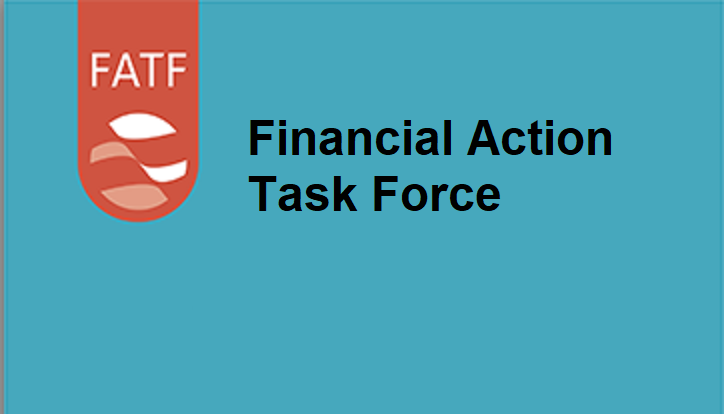Pakistan makes notable progress to counter terrorist financing: FATF

MG News | December 02, 2021 at 05:29 PM GMT+05:00
December 2, 2021 (MLN): Financial Action Task Force (FATF) has appreciated significant progress made by Pakistan to strengthen the counter-terrorist financing measures, as per its original action plan, the annual report by FATF under the German Presidency for 2020-2021 issued on Wednesday noted.
However, the APG’s 2019 mutual evaluation identified additional deficiencies with the country’s anti-money laundering measures.
The FATF worked with Pakistan’s authorities to develop a new action plan, which includes demonstrating that financial supervisors conduct on-site and offsite checks on non-financial sector businesses and demonstrating an increase in money laundering investigations and prosecutions, including cases involving overseas financing.
Each of the jurisdictions under increased monitoring has provided a high-level commitment to resolve the deficiencies and has agreed to an action plan and timeframes to complete the necessary reforms. It is not a punitive process. The FATF and FATF-style regional bodies will work with the jurisdictions as they report on the progress achieved, the report said.
During the COVID-19 pandemic, governments around the world focused on managing the urgent health crisis, from strained medical services, lockdown measures, mass loss of employment, and struggling businesses to vaccine rollouts. This significantly impacted jurisdictions’ ability to report back on the progress they were making on their respective action plans.
To address this issue, the FATF extended the reporting timelines for monitored jurisdictions and, for the October 2020 Plenary, gave them the option not to report on their progress, given their focus on addressing the impact of the COVID-19 pandemic. Seven countries chose to report: Albania, Botswana, Cambodia, Ghana, Mauritius, Pakistan, and Zimbabwe. The FATF updated the statements for these countries only.
The FATF also adopted flexible procedures to allow its monitoring programme to continue in light of the COVID-19 pandemic. It allowed FATF to resume its work on reviewing and identifying jurisdictions with serious deficiencies in their measures to combat money laundering and terrorist financing.
In February 2021, the FATF identified Burkina Faso, the Cayman Islands, Morocco, and Senegal. In June 2021, the FATF added Haiti, Malta, the Philippines, and South Sudan to its list of jurisdictions under increased monitoring.
The detailed report underlined that during the first year of its German Presidency, the FATF completed important work to strengthen understanding of the links between arms trafficking and terrorist financing. Terrorist attacks often use illegally trafficked weapons, and the illicit arms trade is a predicate offense for money laundering.
Strong and effective measures to combat money laundering and terrorist financing are important. Over the years, the FATF has continuously refined its Standards to make sure they address evolving threats and are in line with the risk-based approach. For example, the FATF has refined its measures to protect NPOs from being abused for terrorist financing. The FATF has also clarified that the implementation of these measures should not disrupt or discourage legitimate non-profit activities. The FATF has also promoted a proportionate approach in the implementation of its standards, in order to avoid contributing to derisking and financial exclusion.
Trade-based money laundering (TBML) is one of the most frequently used methods of money laundering. It is also one of the most difficult methods to detect. TBML is hidden among the trillions of dollars of international trade each year.
It often involves criminals falsifying trade documents to disguise illicit proceeds as seemingly legitimate revenue.
In December 2020, the FATF and Egmont Group of Financial Intelligence Units finalized a report that aims to help the public and private sectors with the challenges of detecting TBML. Using numerous case studies from around the FATF’s Global Network, it explains the ways in which criminals exploit trade transactions to move money, rather than goods.
It explains the most common methods used, such as over-invoicing, under-invoicing, and phantom shipments. The Trade-Based Money Laundering - Trends and Developments report also highlights the actions that countries can take to detect and stop TBML. These include better private-public
“This Plenary year, we have continued to face the unprecedented challenges of the COVID-19 pandemic,” Dr. Marcus Pleyer FATF President said.
As millions struggle to cope with its devastating impact, FATF has carried out crucial work, including highlighting how criminals are exploiting the crisis for their own gain and informing governments about how to prevent this, he added.
He also said that it is an exciting time for technology with artificial intelligence, machine learning, and big data analytics being developed and deployed in many fields. I truly believe new tech has the potential to be a game-changer in the fight against money laundering and terrorist financing.
The second year of the German Presidency will include a focus on improving beneficial ownership transparency. Every year hundreds of billions of dollars are laundered through fake companies and the money is used to facilitate crime.
It is clear current beneficial ownership rules are not working. The FATF is reviewing the rules and I hope to see a consensus for a new global standard later this year. We will also focus on money laundering and migrant smuggling, a serious transnational crime that generates significant illicit profits, as well as the real estate sector, art and antiquities, and asset recovery, he noted.
The report noted that the COVID-19 pandemic continued to have a profound impact on societies. Criminals were quick to exploit the pandemic, from mounting cases across the globe of counterfeiting of medical goods, investment fraud adapted cyber-crime scams to the exploitation of economic stimulus measures put in place by governments.
At the same time, governments around the world have had to focus their resources on crucial health services and economic recovery initiatives. It impacted their ability to detect, investigate, prosecute or disrupt money laundering activity.
In this regard, FATF President issued a statement in October 2020, to urge jurisdictions to continue to actively identify, assess, and understand how criminals and terrorists can exploit the COVID-19 pandemic. The FATF has also encouraged the use of technology, including FinTech, RegTech and SupTech to the fullest extent possible to ensure the continuation of essential financial services and the payment exploited it to reform and make better use of technology.
Going forward, the report also highlighted that FATF has been focussing on the illegal trade in wildlife, forestry crime, illegal mining, and waste trafficking. These crimes generate hundreds of billions annually and are destroying the environment, creating massive health and financial costs, and exacerbating climate change.
According to available studies, criminals are making up to $152 billion annually from illegal logging alone, it noted.
Supervisors and operational agencies across the FATF Global Network, as well as the private sector, have been incorporating different digital tools to assist their anti-money laundering and counter-terrorist financing (AML/CFT) efforts, the report said.
Under the German Presidency, the FATF has launched a series of projects to take stock of the landscape, opportunities, and challenges of digital adoption across the FATF Global Network. They also aim to provide guidance to public and private sectors on harnessing the opportunities that technology can offer to enhance AML/CFT efficiency and effectiveness, the report highlighted.
FATF also started a new project to help operational agencies, especially financial intelligence units, to make better use of technology to strengthen their operational capability, effectiveness, and resilience in detecting suspicious activities and analyzing financial intelligence.
Copyright Mettis Link News
Related News
| Name | Price/Vol | %Chg/NChg |
|---|---|---|
| KSE100 | 136,502.54 259.91M |
1.64% 2202.77 |
| ALLSHR | 85,079.90 838.35M |
1.26% 1061.74 |
| KSE30 | 41,552.62 97.27M |
1.81% 738.33 |
| KMI30 | 193,330.76 84.69M |
0.39% 741.60 |
| KMIALLSHR | 56,315.31 366.02M |
0.43% 243.06 |
| BKTi | 38,498.08 37.91M |
4.13% 1526.33 |
| OGTi | 28,138.38 5.66M |
-0.36% -101.89 |
| Symbol | Bid/Ask | High/Low |
|---|
| Name | Last | High/Low | Chg/%Chg |
|---|---|---|---|
| BITCOIN FUTURES | 120,095.00 | 123,615.00 118,675.00 |
1565.00 1.32% |
| BRENT CRUDE | 69.18 | 71.53 69.08 |
-1.18 -1.68% |
| RICHARDS BAY COAL MONTHLY | 97.50 | 0.00 0.00 |
0.25 0.26% |
| ROTTERDAM COAL MONTHLY | 106.50 | 106.60 106.50 |
-2.20 -2.02% |
| USD RBD PALM OLEIN | 998.50 | 998.50 998.50 |
0.00 0.00% |
| CRUDE OIL - WTI | 66.94 | 69.65 66.84 |
-1.51 -2.21% |
| SUGAR #11 WORLD | 16.31 | 16.67 16.27 |
-0.26 -1.57% |
Chart of the Day
Latest News
Top 5 things to watch in this week
Pakistan Stock Movers
| Name | Last | Chg/%Chg |
|---|
| Name | Last | Chg/%Chg |
|---|



